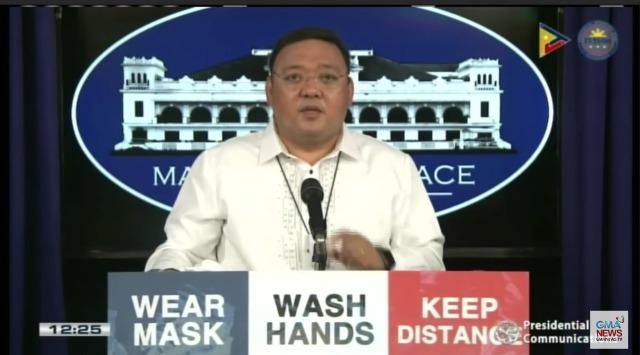Philippines to sell properties in Japan only if necessary -Palace

Malacañang on Tuesday said the Philippines would sell its pieces of property in Japan only if necessary.
Palace spokesperson Harry Roque made the statement after President Rodrigo Duterte said on Monday that the government was selling properties, including those in Japan, to augment the funds of the Philippine Health Insurance Corp. (PhilHealth).
“Huwag po kayong mag-alala. Dahil nga po sa Universal Healthcare Law, kung kulang po iyan ay tutustusan po galing sa kaban ng taumbayan. Kaya nga po, kung kinakailangan, ibebenta iyong mga properties na iyan,” Roque said in a televised briefing.
“Paninindigan po niya iyong obligasyon ng estado na pangalagaan ang kalusugan ng mga Pilipino. If it means having to sell assets, why not?”
The Philippines acquired four properties in Japan as part of the reparations agreement signed by the two countries in 1956. These are located in Roponggi and Nampeidai in Tokyo and Naniwa-cho and Obanoyama-cho in Kobe.
Roque said the sale of the properties in Japan must have the approval of both the President and Congress, citing a 1990 Supreme Court ruling.
Bills seeking to sell the properties to fund the pension and benefits of veterans and military retirees are pending in Congress, but Foreign Affairs Secretary Teodoro Locsin Jr. objected to the proposal.
“I will never agree to the sale of our properties in Japan for any reason. Sell the properties of the departments of budget, treasury, health above all for its lousy response to COVID,” Locsin tweeted on Tuesday.
“The properties are idle. Imagine selling our Japan properties to fund the programs of DOH? Rob PhilHealth some more instead. They’re good at that. Sell San Lazaro. Sell RITM.”
The Department of Foreign Affairs (DFA) has warned that the redevelopment or sale of the properties would lead to costly litigation in Japan.
The DFA said the Roponggi property—whose first floor and part of the basement are currently used as offices of the Philippine Embassy in Tokyo—is already subject to the 1997 Development Agreement and would only be reverted to the Philippine government in 2047.
The department also said that the Naniwa-cho and Obanoyama-cho properties in Kobe prefecture could not be sold due to the 2005 Service and Development Agreement (SDA), which provides that the possession of property will only revert to the Philippine government in 2058.
The Nampeidai property, meanwhile, is still subject of a pending case before the SC, according to the DFA. -NB, GMA News




